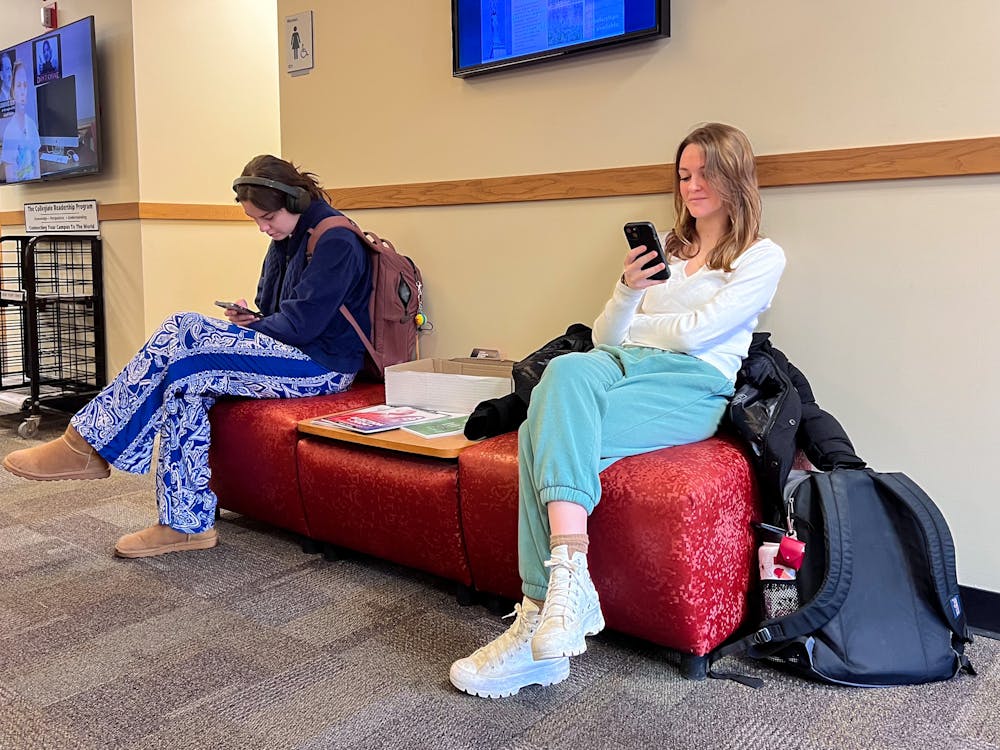The global sensation TikTok was released in 2016. Since then, it has been the source of fashion trends, entertaining dances and creative stories. For nine years, the app has drawn in inspiring companies, influencers and celebrities.
But how did a platform shift from fun to a national security threat? Moreover, how did the ban shake other countries to take similar action?
In the United States, TikTok came into the political eye only a few years after its release.
In October 2019, Senator Chuck Schumer (D-New York) and Tom Cotton (R-Arkansas) asked U.S. intelligence agencies and officials to investigate TikTok as a national security threat. Because the app is owned by its Chinese parent company Bytedance, the senators questioned the app’s data-collecting practices. At the time, TikTok was widely popular among younger generations, with 110 million users in 2019.
In response to this search, TikTok stressed its independence from the Chinese government, stating that no private information is shared between American users and the Chinese government. This investigation sparked the political tension between TikTok and its parent company.
In January 2020, The U.S. Department of Defense instructed all military personnel to delete TikTok from all personal devices. Capt. Christopher Harrison, U.S. Marine Corps spokesman, released a statement promoting this action.
“This decision is consistent with our efforts to proactively address existing and emerging threats as we secure and defend our network,” Harrison wrote.
Despite TikTok having emphasized its separation from the Chinese government, the order was made under the “potential risk” TikTok posed to its user’s personal information, as well as concerns over cybersecurity and spying by the Chinese government.
In July 2020, President Donald Trump announced he was considering banning TikTok because it posed a national security threat. His statement dissuaded Microsoft from posing a potential deal to purchase the app.
In the same month, India banned TikTok and many other Chinese-owned apps. The country’s technology ministry said it received reports that mobile apps were “stealing and surreptitiously transmitting users’ data.” The ban was also in response to clashes between the two countries, where 20 Indian soldiers died.
The following month, Trump signed an executive order to ban any transactions between American companies and Bytedance. The order included calling the transactions a “national emergency” because of how the app “captures vast swaths of information from its users.”
A few days later, Trump issued another executive order demanding Bytedance sell TikTok to the U.S., and Trump gave Bytedance 90 days to do so. The order Trump made suggested no room for compromise which made Microsoft optimistic about a possible deal, but nothing came out of it.
Enjoy what you're reading?
Signup for our newsletter
In November 2020, Joe Biden was elected President of the United States and both the order and the selling deal were put on pause. During this time, TikTok began to grow rapidly, surpassing one billion active users. For a while, things were quiet.
Tension resurfaced in December 2022 when former FBI Director Christopher Wray raised concerns about TikTok and its national security risks. His concern centered around the app’s ability to push a certain algorithm to American users, influencing ideologies that did not align with those of the U.S.
In March 2023, U.S. Legislators held a congressional hearing with TikTok CEO Shou Zi Chew. During the hearing, he relentlessly denied all claims that suggested an alliance between TikTok and the Chinese government.
A clip from the hearing went viral on TikTok; in the clip, Cotton repeatedly asks Chew if he is Chinese or affiliated with the Chinese communist party. To this, Chew famously replied, “Senator, I’m Singaporean.”
Despite Chew’s efforts, in March 2024, Congress proposed a bill that bans TikTok or forces Bytedance to sell. The House of Representatives passed the bill, and Biden signed it one month later.
In the summer of 2024, both Trump and former Vice President Kamala Harris joined TikTok and began posting content to support their candidacy for the 2024 presidential election. After winning the election in November 2024, Trump asked the Supreme Court to pause the TikTok ban in the U.S. because his stance on it reversed.
On Jan. 18, the app was temporarily banned for 12 hours, but later resurfaced due to Trump’s attempts to negotiate with Bytedance.
Kevin Reuning, professor of political science at Miami University, said a TikTok ban could spark tension.
“I think there will be, from a more elite political point of view, a lot of blaming of other people,” Reuning said. “Both Republicans and Democrats were kind of trying to back away from this even though the initial ban was voted with bipartisan support in Congress.”
Reuning described that a TikTok ban is unique in comparison to other platforms because of its interaction with the First Amendment.
“There are limits on speech in a variety of ways, but this to my knowledge [is]something sort of entirely new,” Reuning said. “Social media has come and gone, but this is again, different.”




